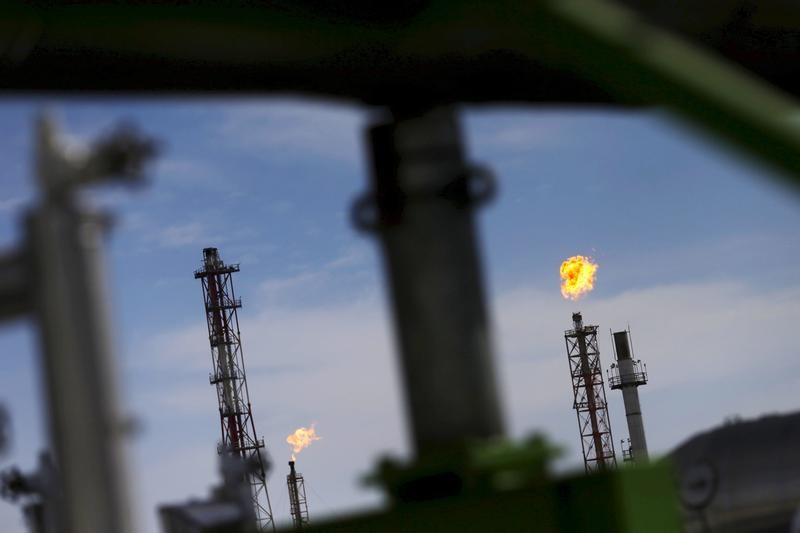By Amanda Cooper
LONDON (Reuters) - Oil eased on Wednesday but was still near a four-week high after top exporter Saudi Arabia said it was determined to end a supply glut that has been weighing on the market for three years.
Brent crude futures (LCOc1) were down 20 cents at $58.13 a barrel by 0930 GMT, having closed up 96 cents or 1.7 percent on Tuesday. U.S. West Texas Intermediate crude (CLc1) was trading down 27 cents at $52.20.
Saudi Arabian Energy Minister Khalid al-Falih said on Tuesday the kingdom was determined to reduce oil inventories stocks in industrialised countries to their five-year average and raised the prospect of prolonged output restraint once an OPEC-led pact to cut supplies ends.
There is evidence that global inventory levels are falling and demand is strong, but the price has struggled to break above $60 a barrel, partly due to uncertainty about what will happen to crude supplies after March, when the deal is due to end.
"We've got a two-way battle here and at this stage, the bulls are having it," Saxo Bank senior manager Ole Hansen said.
"We are in much better shape than we have been for a long time. The million dollar question is - is the market ready and prepared for a go at key resistance above 60? I still feel that is a step too far," he said.
The Organization of the Petroleum Exporting Countries, Russia and other producers have cut oil output by about 1.8 million barrels per day (bpd) since January. The pact runs to March 2018, but they are considering extending it.
"OPEC is holding a line on the production cuts," said Tony Nunan, oil risk manager at Mitsubishi Corp in Tokyo. "Even though shale (output) is now rebounding, the stocks are drawing, and now we're heading into the winter season, so the market is strong."
Data from the American Petroleum Institute on Tuesday showed U.S. crude stocks rose by 519,000 barrels last week, compared with analysts' expectations for a decline of 2.6 million barrels. [API/S] [EIA/S]
Gasoline inventories fell by 5.8 million barrels, compared with analysts' expectations for a 17,000 barrel decline.
The U.S. Energy Information Administration will release official government inventory data later on Wednesday.

Disruptions to exports from Iraq, OPEC's second-largest producer, amid tensions between Baghdad and the autonomous northern Kurdish region have supported oil prices. The Kurdish authorities offered on Wednesday to suspend their independence drive.